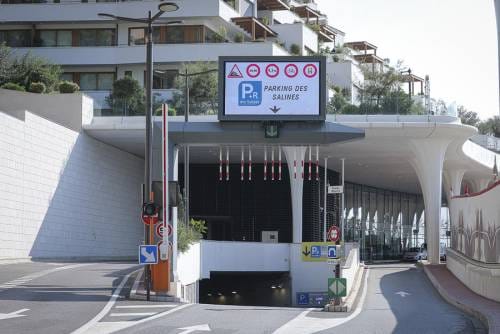“Think like a wise man but communicate in the language of the people”. This simple aphorism by the Irish writer and poet William Butler Yeats points out the increasing need to communicate in a more objective, simple, synthetic, clear and flexible way. Something even more crucial when we are debating on multidisciplinary environmental issues.


From this key concept, the journalist and Sustainability expert writer, Maurizio Abbati, presented, under the auspices of Prince Albert II of Monaco Foundation (@FPA2) and the Italian Embassy in the Principality, at Monaco Novotel, last Thursday (21st June 2018) his brand new editorial project called: “Communicating the Environment to Save the Planet – A journey into Eco-communication”, edited by Springer Nature International Publishing, with the foreword of H.S.H. Prince Albert II of Monaco and of Stefano Zunarelli, Transportation, Air and Maritime Law Professor at Alma Mater Studiorum, University in Bologna (Italy) and Technical Advisor of UNCITRAL, IMO and EU Commission and the Italian Ministry of Transportation.


This cultural-scientific event, dealing with a very up-to-date topic, saw the participation of a large prestigious audience, among them notably H.E. Bernard Fautrier, Vice President of Prince Albert II of Monaco Foundation and H.E Cristiano Gallo, Ambassador of Italy in the Principality of Monaco, who could appreciate the way of communicating synthetically, through original slides, videos and word clouds, the Environmental issues of each area covered in the book.
First of all, the elements which characterize the “chain of communication”. As the author pointed out: «the eco-communication, in fact, is not an activity taken for granted but it implies professional training and responsibility”. And he added: “words, sounds, images, voices, signs and any other form of communication interact with each other presenting a polyphonic language of the Environment».

Secondly, the thought evolution starting from the Nineteenth century and the role of Media (Mass & Social Media) spreading worldwide although threatened by “noises” of different kinds.
Thirdly, the debate on Journalism and Environment which tend to meet even more because of the influence of the Society of Information and in particular Social Media, that is Information and Communication Technologies (ICT).
To end up with very relevant issues such as: the relationship between Green & Circular Economy as a result of Eco-sustainable actions implemented by corporates; the Environmental messages of public interest that imply the cooperation of more communicators; the environmental communication tools (including World Conferences, Eco-Accountability, Environmental Management Systems – EMS, Big events) and the legal eco-language.

All the above topics are linked to a special section about Twenty-two Interviews with highly qualified Professionals in their original languages (all translated in English at the end of the book) and Twelve Case Studies supplied by some of them to increase the readers’ awareness on Environment and Sustainability. Furthermore, the numerous social and web sites make the book an original “platform” constantly open to dialogue.

Last but not least, since in his book the author pointed out that art and music are important means to communicate the Environment and, considering that on the 21st of June the European Music Day is celebrated, he concluded his lecture with a video of the talented Canadian harpist Valérie Milot interpreting masterfully “The Moldau” by the Czech composer Bedřich Smetana.

Then the illustrious audience, mainly @FPA2 members, gathered in the next hall for a “pause collection” and congratulated Maurizio Abbati asking him more information on his book that is coming out soon (July 2018) and by coincidence it was presented, on the same day, in Cape Town (South Africa) at the 5th International Climate Change Adaptation Conference. Everybody could also admire the beautiful piece of Art of the engineer-sculptor Antonio Salinari representing a skeletal greenish hand (made of timber) stretching out toward a dry tap, thematic symbol of the Environment threat of losing a vital element such as Water.
HelloMonaco, also sponsor of the event, was represented by the refined presence of Olga Taran, its Editorial Director.








